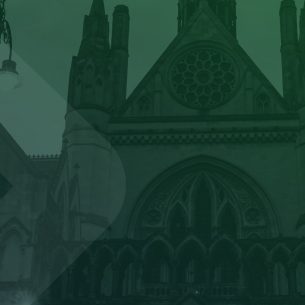Partner Richard Cannon discusses how the seizure of Bitcoin in the James Zhong case highlights the challenges for authorities in dealing with crypto crimes and recovering digital assets.
Richard’s article was published in The Times, 08 December 2022, and can be found here.
The US authorities recently announced that they had seized a circuit board hidden in a popcorn tin that held 50,000 stolen bitcoin and that the thief, James Zhong, had defrauded Silk Road, a notorious marketplace on the dark web.
The bitcoin was forfeited last month, a year after Zhong’s arrest and over a decade after his initial theft. Zhong pleaded guilty and is awaiting sentence.
Currently in the UK, a restraint order under the Proceeds of Crime Act prohibits named parties from dealing in property, including crypto assets. It is designed to preserve assets in advance of a confiscation order being made if they are convicted.
However, it can only be obtained where a criminal investigation or proceedings have started and there are reasonable grounds to suspect the alleged offender has benefited from their criminal conduct. While it is a worldwide order, not all jurisdictions would act on it.
A confiscation order, unlike a civil order, is made against the person, not the property, with a default prison sentence imposed in the event of failure to pay. Only if the terms of the order are not met can the court order a specific asset to be realised towards the outstanding amount.
The Economic Crime and Corporate Transparency Bill is before parliament and brings crypto assets into the range of the legislation’s civil powers. This would give a magistrates’ court power to forfeit crypto assets of unlimited value when nobody has been convicted or even charged with an offence.
The court will also be able to order crypto exchanges to transfer crypto assets to pay off a confiscation order. However, this power extends only to UK-registered exchanges. Crypto can be held on an exchange that may be in an uncooperative or non-regulated jurisdiction, representing a much wider problem for law enforcement.
In the Zhong case, the authorities needed to be in the right place at the right time to seize the physical storage device for the crypto. But they still needed the personal key to access it. Without it the crypto is worthless, further complicating the seizure of digital assets.
The unprecedented volatility of crypto creates real issues for the law when dealing with seizure and forfeiture. In the Zhong case, the crypto was worth $500,000 when stolen, $3.3 billion when seized and $1 billion when finally forfeited this month.
When it comes to tracing, while there is a digital record of all transactions on the blockchain, the speed by which assets move and the anonymity of wallet-to-wallet transfers make it heavy terrain for investigators.
Developments in the law are all well and good, but they won’t easily solve the challenges that criminal crypto presents.





